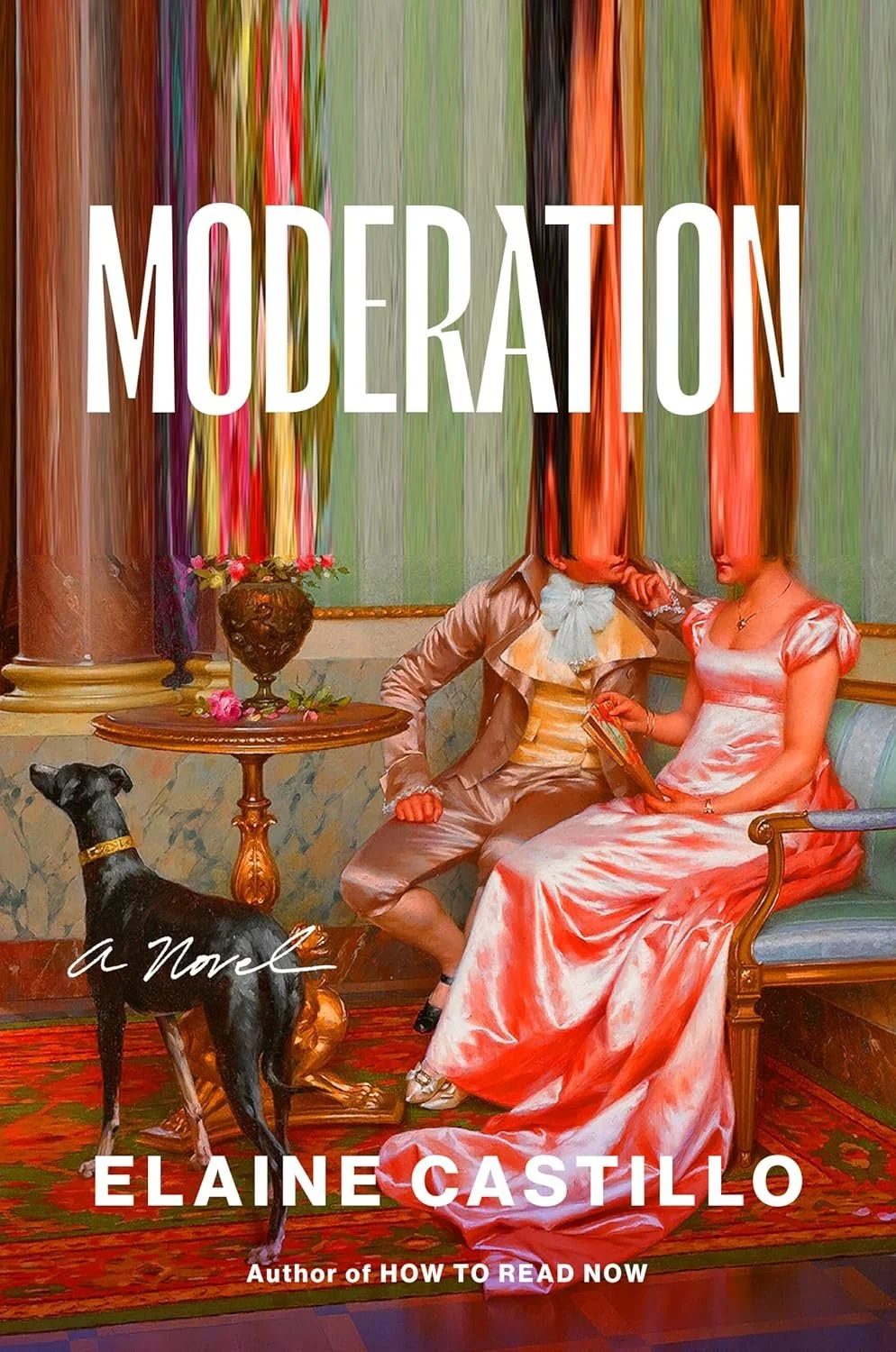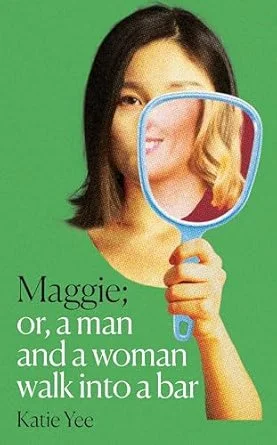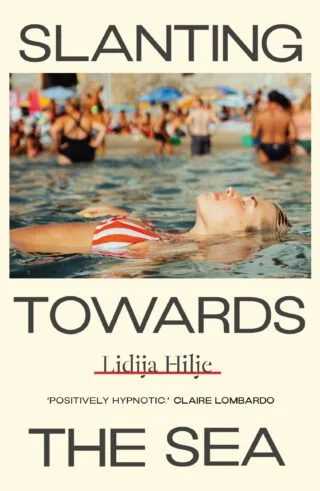Ex-Wife, Ursula Parrott – Extract
New York, 1924. Patricia and Peter are a thoroughly modern married couple. Both drink. Both smoke. Both work. Both believe in ‘Love-Outside-Marriage’. Until they don’t. Or, really, until he doesn’t. So when Peter pushes for divorce with increasing violence, Patricia has to forge a new life as a single woman: as an ex-wife.
A sensational bestseller in 1929, yet utterly timeless, Ex-Wife plunges us into the ‘era of the one-night stand’. It evokes not only the Manhattan bars, fashion advertising offices, female friendships and all-night parties of a dazzling city, but the hollow affairs, emotional hangovers, backstreet abortions, and struggles for sexual freedoms amidst the moral double standards of a patriarchal world.
Chapter vi
It was early Spring . . . time to write ads of “Easter Apparel and Accessories” . . . to get out extra fashion pages, after last-minute buyers’ conferences. Rush the art work; rush the cuts; rush copy to the typographer; tell him to rush proofs. The fashion copy-writer left. Then I was fashion copy- writer. The assistant advertising manager was ill—they let me do her work. I was glad. It made the days go fast.
“Get a lizard bag up, an import, to be sketched with those lizard shoes, Miss Thomas,” I said. “Miss Hastings’s on her way down; she’s going to do all the art work in the two accessory columns. Hosiery, gloves, the shoes-and-bag in one, handkerchief, jewelry item, there’s one more space. Tell Mr. Johnson the flower and the perfume buyers both wanted to go in the page—and ask him to decide. I don’t want the one who’s left out, discussing why with me . . . No, we can group the boutonnière and perfume bottle, and use ’em both. They’ll balance the shoes-and-handbag. Hastings’s good at handling that sort of thing.”
A jargon—a jargon I had learned quickly. It paid for the rent and taxis to the office and for clothes—more clothes than I had had since I was married. I had a new Spring ensemble in blue—the dress a Ducharne print, the coat a good copy of one of Vionnet’s—“with the intricate simplicity of the original about it”—$89.50 wholesale. The buyer took me over to the manufacturer; I admired his whole line, politely; I talked about advertising; I got his copy to write for Women’s Wear; $25 a week extra. Not bad. I got a mill- inery account the same way, that paid $15. The office paid me $65, since I was fashion copy-writer. I bought two pairs of shoes at once nowadays, and purses to match them, and said it was economy. They stayed looking well longer.
I had plenty of washable suede gloves, that Nora kept beautifully fresh. Silly gay jewelry, to wear a month and throw away. But it must carry out the ensemble idea, meanwhile. A black silk coat, that was not just a black silk coat. A black and white Patou frock. Hats and hats and hats—because I loved hats. (The forlorn days when I lived with Peter and hunted about, toward the season’s end, for one hat for five dollars in a sale.) Lovely expensive powders, and lipsticks and perfumes. (Peter bought me a bottle of Houbigant’s Idéal once. That is not very expen- sive, but he must have gone without lunches three days to get it.)
It was seven weeks since Peter left; five weeks since I began to live with Lucia. There was no time, or not very much, to think about Peter—waking, doing calisthenics, having orange juice and toast and coffee in a drug store, taking a cab to the office. No time to think of Peter, from nine to one, or from two-thirty to five-thirty. No time after, walking home fast, two miles in forty minutes, bathing, dressing, going places.
Men told Lucia I was lovely looking, but completely cold. Why cold? I let them kiss me when they must, in cabs, dancing in hot nightclubs, at parties. They were not real. Neither was the office.
Clothes were real. I bought many clothes so that, when Peter called up, I could say “come over instantly” and I would be marvellously dressed. I dressed carefully, always, because I might meet some friend of Peter’s, who would go back to him and say, “I saw Patricia; she was looking beautiful.” Then he would call up sooner.
The telephone was real. Someday, or perhaps some night, late, it would ring significantly. That would be Peter. He would begin by saying “Patty, it was all—the last months— all a crazy mistake; I’m coming back.”
And I would say, “I’m glad.”
I would tell Peter about first nights, and the funny tabloid columnist who came in and wrote his stuff on my typewriter when I wanted to go to bed, until Lucia came and took me downstairs to sleep. The columnist looked so disappointed.
I would tell Peter about my arrangement with Lucia, to turn up at Childs at three in the morning when I was out without her; so that I could meet her, supposedly accidentally, and go home with her. The arrangement was made because Lucia said I was not awake enough, yet, to be able to handle anyone. That would amuse him—tell him that I went sleep-walking about, all through the weeks he had gone.
Meanwhile, the days hurried, and the evenings hurried; and, when I went to bed in the daybed that could be adjusted for two people (what had Lucia meant by that, Lucia had no lover), I slept, usually.
Sometimes, when I woke in the night, I began to ache for the feeling of Peter’s head against my shoulder . . . and thought “if I could run my hand through Peter’s silky tumbled hair—softly, not to wake him . . .”
Then I went downstairs and slept on the little couch in Lucia’s apartment. When she woke, she just said, “Hello darling. I have such a hangover.”
And I said, “You ought to do calisthenics at night, Lucia. They’re wonderful for hangovers.”
“Oh, don’t be such a tiresome athletic lamb. Makes me weary to think of calisthenics. Is it eight o’clock yet?”
One evening when I worked until half past six, I cabbed home, because Lucia and I had a foursome dinner engage- ment at seven, and I had to be dressed in fifteen minutes.
But Lucia was not in. I looked for a note on the telephone pad, where we always left messages for each other. It said: “Your husband telephoned at six. I told him to call again at seven. Took our two men off. Good luck.
“P.S. Keep your head, darling.
“P.P.S. I’ll be home around midnight, if you want to come down.”
It was twelve minutes of seven. I dropped hat and gloves and purse and packages (two pairs of chiffon stockings in a shade called “ecstasy” and a net bandeau from Paris) all on the stairs, and sat down beside them. My knees shook, so that they kept hitting against each other, and that amused me inordinately. I got a cigarette and matches from my purse, and smoked and let my hopes run.
(He is coming back; it is all over with Hilda, and he just could not stand Judith; he is coming back. What shall I do with this apartment? I wonder if Pete would live on Brooklyn Heights or somewhere economical so we could save money and have another baby in a couple of years. I always knew if I did not believe it was all over, it would not be. Must be tactful and not too curious about whatever he has been doing. He has just been having an excursion, and Lucia says they come back better for the outing. I must remember that. Should I tell him about the doctor? No, absolutely no. I was sort of crazy; else that would not have happened.)
The telephone rang. “Peter darling!”
“Oh, is that you, Pat? I wondered if you were free for dinner; we might discuss our divorce.”
I could not answer for a minute. (But how stupid of me. He would not admit, instantly, that he wanted me back—it would make him seem so inconsistent. Men mind that.)
“Yes, I’m free for dinner, Pete, if you’ll give me three quarters of an hour to get ready. I’m just home, and I have to bathe and things . . .”
“All right. That will be quarter to eight. Shall I call for you or will you meet me? I thought we might dine at the Blue Star.”
(Oh, pleasant French speakeasy where we used to dine to celebrate things, occasionally, when we were in funds. That was a good sign, that he wanted to eat there. Better meet him there, he could have a cocktail while he waited. Then he would be sure to feel good-tempered.)
“Suppose I meet you there, Pete, at eight.” “’Right. See you in an hour. Good-bye.”
What to wear, the blue ensemble or Patou frock and black coat? I rushed upstairs, started my bath running, took out a crisp pale rose French chemise, that was all beauti- fully tucked and pleated. Pete loved underthings in pretty colours, and hated lacy stuff.
Then the implications of that—my sureness that he would admire the chemise—made me so breathless that I had to sit down for an instant and have some of another cigarette.
The Patou frock, certainly—it was much more striking— made me look ineffably slim yet sufficiently curved. I bathed and dressed hastily, but efficiently. The great problem was how much rouge? I had so much colour of my own at the moment—but if it faded later I did not want to look wan and forlorn. Better risk a little too much, the lights in the Blue Star were dim, and with a black dress and hat I could stand it.
The dress slipped on. Black marocain with a deep white collar and exaggerated cuffs, cut petalwise. Black satin opera pumps . . . I did not like satin shoes much, but these made my feet look so narrow. An almost brimless black milan hat, with a gold arrow embroidered athwart the front. Pearls—no, the flat gold necklace.
Hunting for the necklace, I found an old ring, a flawed emerald in a curious Italian setting. Pete bought that for me in London, in an antique shop on Oxford Street. I put it on as a good gesture.
Lucia had some Nuit de Noel perfume. Pete liked that. I went downstairs for it. In Lucia’s bath, regarding myself in her long mirror, glowing, I was grateful for my looks. They had been useful to me with Pete, and not so long ago. Lucia had written something about “keep my head.” I never could with Pete. Never did. But it was reassuring to be looking my best.
In the taxi, being very careful to sit so that the back of the black silk coat did not get mussed and careful not to touch anything that would soil my gloves, I felt a little cold suddenly because I could not remember what, if anything, Pete had ever liked about me except my looks. I would have to think back to find out, nearly two months since I had seen him, and, before that, there was the six months’ war . . . (Oh, do not think about that, think about what I am going to say when I see him.)
He sat, in a blue suit that I had not seen, smoking, with an empty cocktail glass in front of him. He looked lean and hard, and a little strange, somehow. He did not see me until I was quite close.
“Oh, there you are, Pat, how are you? What’ll you drink?” “A Martini, I think.”
“All right; let’s order dinner right away; then we can talk,” he said. “You’re looking handsome, Pat.”
“You, too.”
“How’s the advertising business?”
“All right. I got a raise. How’s the newspaper business?” “I got a raise, too. Have another Martini?”
“Yes, thank you.”
I felt cold and dry, like a Martini. I had sat across a narrow table from Pete hundreds of times before, and felt as close to him as if the lovely hardness of his arms were around me. Now there was a distance compounded of lies and quarrels and separate adventures. I had not known there would be such distance. Perhaps it could be bridged. (Do not hurry him—try to think. I cannot. I want to say, “Take me back; give me another chance, so I’ll come alive again.”)
I took out a handkerchief, so that I could look at myself in the mirror of my purse. My face was composed. That was good.
“Have you replaced me yet, Pat?” He grinned, a friendly enough grin.
“No.” (I have to do something about this. I do not know whether it will be right or stupid, but I have to do something.)
“Haven’t you missed me, really, Pete?”
“A person misses anyone that’s been around as long as you. I’m convalescing slowly.”
I grew a little angry, and knew that I should not. “How’s your Great Romance getting on, Pete?”
“Which one?”
The waiter took away the soup. Pete filled my wine glass. “Hilda-with-the-pure-soul, I mean?”
“Oh, that’s all shot to hell; hadn’t you heard?” His voice was entirely casual. He ate fish with evident enjoyment. (“The sauces are good here, aren’t they, Pat?”)
“No—I hadn’t heard—What happened?”
“I don’t mind telling you. The little girl raised outstanding hell one night I was tight because I kissed someone whose name I don’t even remember, dancing. She put on a show next day because I kept her waiting ten minutes and came in smelling beery. Finally, all in one evening, she tried to get me to promise to stop smoking, kissing, and drinking. God, what a possessive woman! So I told her I couldn’t make the grade, and she told me you were about what I deserved. Does that please you?”
“Not unduly.”
I finished my glass of wine, and drew a long breath. Pete filled the glass again. “You are a grand-looking person, Pat.” But his voice was still casual.
(Well, over the top. Nothing to lose; might gain some- thing.) “And where does the exit of Hilda leave me, Peter?”
“As you were.”
The waiter brought chicken. “What does that mean, Pete?”
He smiled, gently, as if it were a matter of no importance.
He said, “Through.”
Neither of us said anything for a bit—just went on eating chicken. Pete spoke first.
“I thought it would be pleasant to see you, to dine with you. It is. I’m fond of you; think you’re charming looking, have a lovely voice and hands and all that. And I’m sorry I put you through such scenes. You can’t help being what you are, I suppose. Don’t worry about it; it was my mistake in the first place. Have some more wine . . . And by the way, anytime you want a divorce, tell me and I’ll get things arranged. I’m in no hurry myself of course. In fact I begin to feel that the situation, as it is, affords me a certain protection . . .”
I couldn’t talk for a minute. Then, “What do you mean by ‘being what I am?’”
“Oh come on, Pat. What’s the use of going into that?”
“Why not?”
Editorial Picks




